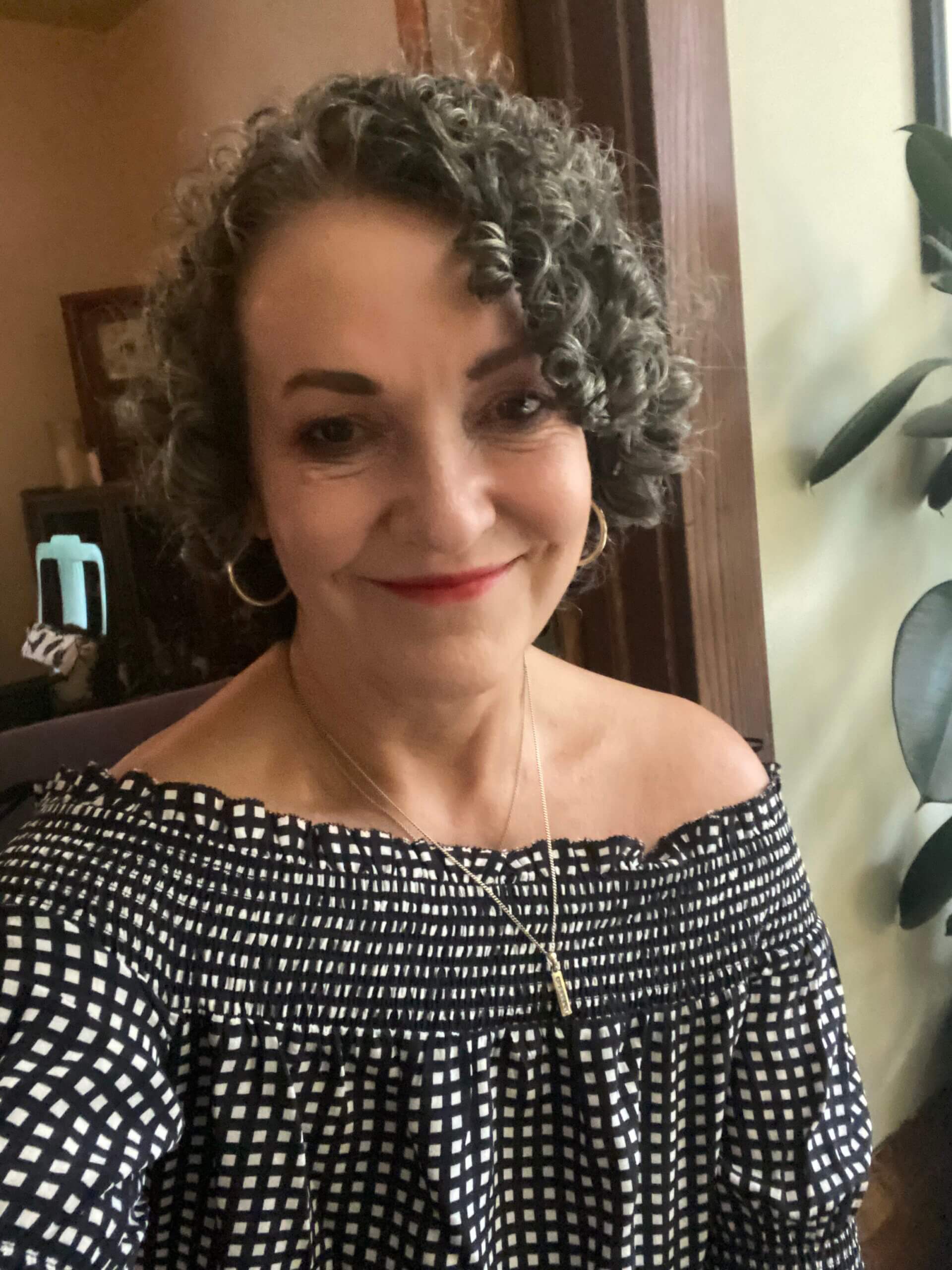The thought of returning to work after breast cancer treatment feels like you just completed one marathon and are now on the brink of another. It is an intricate dance of emotional recovery, physical rebuilding, and professional realignment. Data shows that 80% of women who are diagnosed take a leave of absence from work. Only 44% of those women return to work after treatment is over. We are looking to improve that ratio with our new AskEllyn @ Work program.
The healing process following cancer treatment requires patience and self-compassion. Picking up the fragments of a career, an identity, and a sense of normalcy in the face of such life-altering experiences is daunting. There is a surreal quality around returning to work after cancer, sitting at one’s desk again, trying to reclaim a semblance of the person that existed before the diagnosis.
Every cancer journey is as unique as the woman who embarks on it. In my situation, I’m self-employed. My worries were slightly different. I was concerned about losing my income, losing my clients and potentially losing my business. Thankfully, I was healthy enough during my treatments to continue to work and serve my clients. And the majority of those clients were incredibly supportive of my circumstances. However, these were unique circumstances. For most women returning to work after cancer, there’s an employer to consider, an employment contract to honor, and a job to be done.
Healing is not linear
Healing doesn’t follow a linear path. Even in my situation, I felt a dislocation from my previous routines. I had to redefine my understanding of success and productivity. I had to give myself grace to rest on my low days. Always a type A achiever, let me tell you, this level of surrender was HARD.
It’s a gradual process to ease back into work post-cancer treatment. It will likely require negotiating some form of agreement with your employer. So, it is essential to communicate your needs and limitations honestly. This conversation is more about asserting your boundaries rather than asking for concessions. Keep in mind, most women post-treatment are not just dealing with physical recovery (depending on your treatments your poor body has been through a lot), there’s also associated trauma that often doesn’t hit fully until treatments are complete and the fright and flight mode subsides.
Simply put, cancer changes you physically and mentally. It shows you a glimpse of your mortality. It changes your view and perspective on the world. Many women return to work expecting to have the same professional goals and expectations, only to learn that their outlook and energy to commit to their job fully has changed. It’s not wrong or right. It is just different.
Treatments and side effects can impact return to work
Depending on your treatment and the drugs used there may be other consequences and physical limitations that can impact your return to work. Women who receive the chemotherapy drug doxorubicin (also known as the Red Devil) can in rare cases develop a heart condition. So if you have a physically demanding job or need to perform in a high-risk environment, you may be required to undergo a physical exam before returning to your job. Other side effects of treatment include joint pain, hot flashes, poor sleep quality, neuropathy and the dreaded chemo brain. While I’m a year and a half out from completing my chemo therapy regime, I still find I grapple with word finding and labelling.
These challenges don’t have to represent setbacks, but they do serve as a reality check. While in treatment (remember I continued to work) I had to tailor my work routine around the new rhythms of my body, allowing adequate support and time to rest. I also quickly Integrated exercise and some physiotherapy exercises for treatment and mastectomy recovery into my daily routine. That greatly helped both physically and mentally.
Overall, the experience taught me that healing wasn’t about bouncing back to my old self, but rather about moving forward by embracing my new normal in all aspects of my life, including work. I have learned to reframe my work narrative around my healing journey, viewing it not as a struggle but as an integral step toward my holistic recovery. I also find I have a low tolerance now for BS and unkind behaviours. Life is too short to not work with people you respect, admire and like as humans.
And finally, even while getting my existing work life as a communications consultant back on the rails, I decided to give myself a third job as a health rebel, women’s health advocate, blogger and public speaker. Go figure, I guess my plate wasn’t full enough, navigating cancer and one career.
If you are planning to return to work soon, here are some suggestions:
- Take stock of your needs and limitations post-treatment. This involved honest introspection about your energy levels, concentration, mental well-being and any possible side effects from the ongoing treatment. This may mean consulting with your healthcare team to get a realistic understanding of your capacity.
- Have a conversation with your employer at the right time. Cancer is a job and your care team is in charge. You don’t get a choice in when appointments, scans and procedures happen. So you may want to have a clearer picture of your health status before discussing a return to work.
- Be honest with your employer about your limitations and the need for possible adjustments, whether that was flexible hours, opportunities to work from home or potentially fewer responsibilities to ease back in.
- Be assertive about your needs. Unless your employer has experienced a cancer diagnosis it is very hard to truly understand the emotional and physical toll it takes. Simply because you look well, your hair has grown back doesn’t mean cancer, like a bad cold, is done and over with. Employers need to know you will have appointments to attend and your flexibility is limited in that regard. Your priority number one is your health. If your boss can’t or won’t understand that, then I’d give hard thought to whether it is the right fit for you.
- Keep your employer updated about my progress, both regarding my health and work. This maintained transparency and built trust.
- Finally, know you have rights as an employee. Many countries have laws in place to protect and accommodate employees who are dealing with a critical illness. Consult a local legal advisor if you’re unsure what accommodations you are entitled to or if you are encountering any employer pushback.
Other resources:
https://www.breastcancer.org/managing-life/cancer-survivorship/returning-to-work-after-cancer
https://www.cancer.gov/about-cancer/coping/day-to-day/back-to-work




